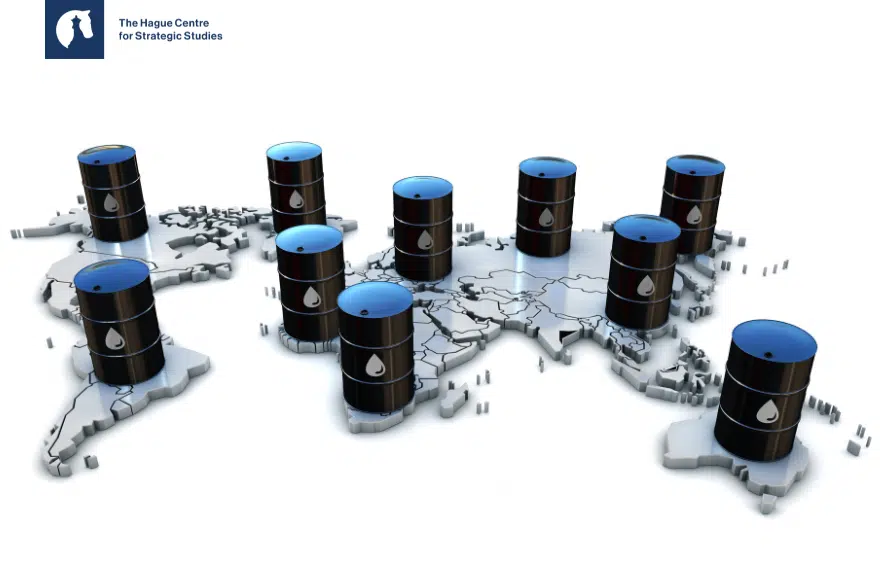Research
As Russia is looking for new energy markets and the EU for alternative producers of fossil fuels, the world oil map is being redrawn. What does the global oil market look like a year after the invasion in Ukraine? What are the foreseen trends in the global oil market in the next 10-15 years? How are these shifts and market volatility affecting European industries and their competitiveness? HCSS strategic analysts Irina Patrahau and Lucia van Geuns explore in this paper written for the Bulgarian Diplomatic Institute’s Foreign Affairs Research Paper on “Energy and Climate Diplomacy”.
Europe’s decoupling from Russia as a result of the war in Ukraine has accelerated global strategic competition, bloc forming and protectionism in strategic sectors. The move away from multilateral cooperation and open trade relations into isolationist policies is mirrored by energy markets. This paper analyses the influence of central geopolitical and economic developments on global oil markets in the short (2-3 years) and long term (10-15 years).
In the short term, global oil markets will remain volatile as suppliers and consumers are settling into a post-sanctions world. As the European Union (EU) is trying to secure supplies from alternative producers, Russia is finding new energy markets. The EU is relying on the United States (US), Norway and the Organisation of the Oil Exporting Countries (OPEC+, excluding Russia) to fill the gap left by Russian oil. Russian relations with China, India and Turkey are intensifying. At the same time, uncertainty regarding the global position and strategy of key market players remains. Is the US emerging as the main energy superpower? How are OPEC+ producers navigating the changing balance of power? Can Saudi Arabia maintain its role as a market balancer, or is it primarily self-interest that motivates cuts in oil production?
Strategic competition is also impacting the energy transition in the long term. Decisive and accelerated action is needed for an orderly energy transition, but current energy developments point to isolationism, nationalism and therefore a more chaotic exit of fossil fuels from the European energy system. The energy crisis that followed the invasion of Ukraine led to significant governmental involvement in oil and gas markets. Securing critical minerals and green technologies for the energy transition has become a priority as well, codified in plans like the US Inflation Reduction Act and the EU’s Critical Raw Materials Act and Net Zero Industry Act.
This is an update of the paper previously released in August 2022, “From the War in Ukraine to the Energy Transition: Searching for a New Balance in the Oil Market” published by The Hague Centre for Strategic Studies.
Authors: Irina Patrahau and Lucia van Geuns
Originally published by the Bulgarian Diplomatic Institute, in their Foreign Affairs Research Paper #17, “Energy and Climate Diplomacy”, on June 2023.







